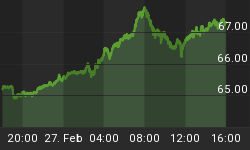The People’s Bank of China, the country's central bank, has announced that all transactions of crypto-currencies are illegal, effectively banning digital coins.
"Virtual currency-related business activities are illegal financial activities," the bank said. It added that cryptocurrencies, including Bitcoin and Tether, are not fiat currencies and cannot be circulated.
Just a few months back, China imposed rules barring banks from offering crypto-related services, pushing traders to over-the-counter platforms and offshore exchanges. However, the new ban goes much further, targeting services provided by offshore exchanges.
In May, the People’s Bank of China announced that financial services companies and payment services would be banned from pricing or conducting business in virtual currencies.
In order to curb money laundering, cryptocurrency trading has been illegal in China since 2019 with similar bans issued in 2013 and 2017.
This doesn’t mean that China is completely giving up on crypto, though. It’s just a question of control.
The crypto ban comes at the same time as the Chinese government’s roll-out of the Digital Yuan, its sovereign digital currency now either years in development. In the last few months, the People’s Bank of China has been launching trial projects in large cities to develop a digital yuan payments system.
The digital yuan was envisioned back in 2014 and already has distributed some $30 million in digital currency.
It’s a clear rival to unregulated cryptocurrencies. It also is the government’s way of challenging WeChat and Alipay, the two private giants dominating the mobile payments market.
China is not the only major economy eyeing a central bank digital currency, even if China’s plans are far ahead of others.
Some 80 countries are exploring the idea and five nations have so far implemented a digital currency--all of them in the Caribbean.
A dozen European countries are currently participating in developing a central bank digital currency (CBDC), D-Euro. European Central Bank aims of D-Euro to complement the existing monetary system rather than replacing physical cash.
In the US, the digital dollar is still under research. In June, the U.S. House Committee on Financial Services held a hearing on the benefits and drawbacks of digital currencies.
The opponents of the digital dollar point out a few disadvantages, including lack of privacy and access. On the other side of the digital divide, proponents claim that the US has to implement it and take a leadership role in this or get left behind.
Democratic Senator Elizabeth Warren has spoken in favor of the digital dollar when comparing a central bank-issued digital currency with cryptocurrencies.
“Legitimate digital public money could help drive out bogus digital private money. It could help improve financial inclusion, efficiency, and the safety of our financial system,” Senator Warren said.
Meanwhile, the Federal Reserve is still skeptical about the efficacy of central bank digital currencies.
Chris Waller, a member of the Board of Governors of the Federal Reserve System, recently wrote that the U.S. government should only intervene with a potential digital solution in the event of significant market failures.
“I am not convinced as of yet that a CBDC would solve any existing problem that is not being addressed more promptly and efficiently by other initiatives,” said Waller.
However, President of the Dallas Federal Reserve Robert Kaplan said a few months back that it is “critical that the Fed focuses on developing a digital currency”.
According to the Bank for International Settlements, 80% of central banks are engaging with CBDC work in some way, with 50 percent already in the experimental or pilot phase.
Consulting group Accenture estimates that a quarter of G-20 countries will have some sort of digital currency in circulation by 2024.
















